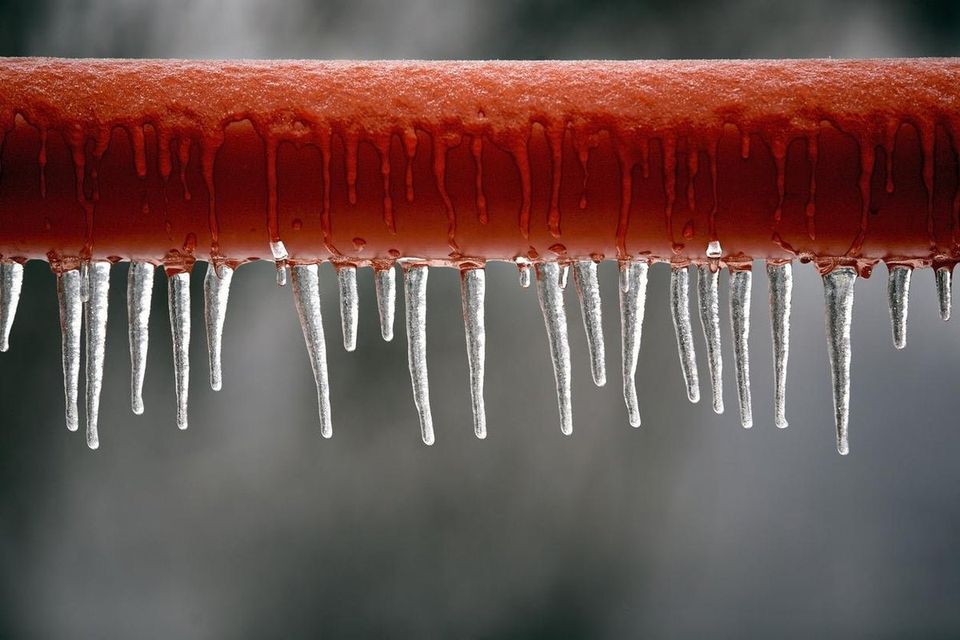Ways to Maintain Your Pipes from Freezing Issues: Essential Tips
Ways to Maintain Your Pipes from Freezing Issues: Essential Tips
Blog Article
What're your thoughts on Helpful Tips to Prevent Frozen Pipes this Winter?

Winter can ruin your pipes, particularly by freezing pipes. Right here's exactly how to stop it from taking place and what to do if it does.
Intro
As temperature levels decline, the threat of icy pipelines rises, potentially resulting in expensive repair services and water damage. Understanding how to stop frozen pipelines is critical for home owners in chilly climates.
Avoidance Tips
Shielding at risk pipes
Cover pipes in insulation sleeves or use warmth tape to safeguard them from freezing temperatures. Focus on pipes in unheated or external areas of the home.
Home heating methods
Keep interior rooms appropriately heated, specifically areas with plumbing. Open cabinet doors to allow warm air to flow around pipes under sinks.
Just how to determine icy pipelines
Try to find reduced water circulation from taps, unusual smells or sounds from pipes, and visible frost on subjected pipelines.
Long-Term Solutions
Architectural changes
Think about rerouting pipelines far from outside walls or unheated areas. Add additional insulation to attics, basements, and crawl spaces.
Upgrading insulation
Invest in premium insulation for pipes, attics, and wall surfaces. Appropriate insulation assists maintain consistent temperature levels and minimizes the danger of frozen pipelines.
Safeguarding Outdoor Pipes
Yard pipes and outside faucets
Detach and drain garden hose pipes prior to winter season. Set up frost-proof spigots or cover outside faucets with protected caps.
Understanding Frozen Pipelines
What creates pipes to freeze?
Pipes freeze when revealed to temperature levels below 32 ° F (0 ° C) for extended periods. As water inside the pipelines ices up, it expands, taxing the pipeline walls and possibly creating them to rupture.
Dangers and damages
Icy pipes can cause water system disruptions, property damage, and costly repair services. Ruptured pipes can flooding homes and create considerable architectural damages.
Indications of Frozen Water Lines
Recognizing icy pipelines early can stop them from rupturing.
What to Do If Your Pipes Freeze
Immediate actions to take
If you believe icy pipes, maintain taps open to relieve stress as the ice melts. Use a hairdryer or towels taken in hot water to thaw pipelines slowly.
Conclusion
Preventing icy pipes calls for proactive actions and quick responses. By recognizing the causes, indicators, and preventive measures, homeowners can secure their pipes during winter.
5 Ways to Prevent Frozen Pipes
Drain Outdoor Faucets and Disconnect Hoses
First, close the shut-off valve that controls the flow of water in the pipe to your outdoor faucet. Then, head outside to disconnect and drain your hose and open the outdoor faucet to allow the water to completely drain out of the line. Turn off the faucet when done. Finally, head back to the shut-off valve and drain the remaining water inside the pipe into a bucket or container. Additionally, if you have a home irrigation system, you should consider hiring an expert to clear the system of water each year.
Insulate Pipes
One of the best and most cost-effective methods for preventing frozen water pipes is to wrap your pipes with insulation. This is especially important for areas in your home that aren’t exposed to heat, such as an attic. We suggest using foam sleeves, which can typically be found at your local hardware store.
Keep Heat Running at 65
Your pipes are located inside your walls, and the temperature there is much colder than the rest of the house. To prevent your pipes from freezing, The Insurance Information Institute suggests that you keep your home heated to at least 65 degrees, even when traveling. You may want to invest in smart devices that can keep an eye on the temperature in your home while you’re away.
Leave Water Dripping
Moving water — even a small trickle — can prevent ice from forming inside your pipes. When freezing temps are imminent, start a drip of water from all faucets that serve exposed pipes. Leaving a few faucets running will also help relieve pressure inside the pipes and help prevent a rupture if the water inside freezes.
Open Cupboard Doors
Warm your kitchen and bathroom pipes by opening cupboards and vanities. You should also leave your interior doors ajar to help warm air circulate evenly throughout your home.

I ran across that post about Preventing and dealing with frozen pipes while doing a search on the web. Feel free to set aside a second to share this blog posting if you enjoyed it. I am grateful for being here. Return soon.
Click Here Report this page